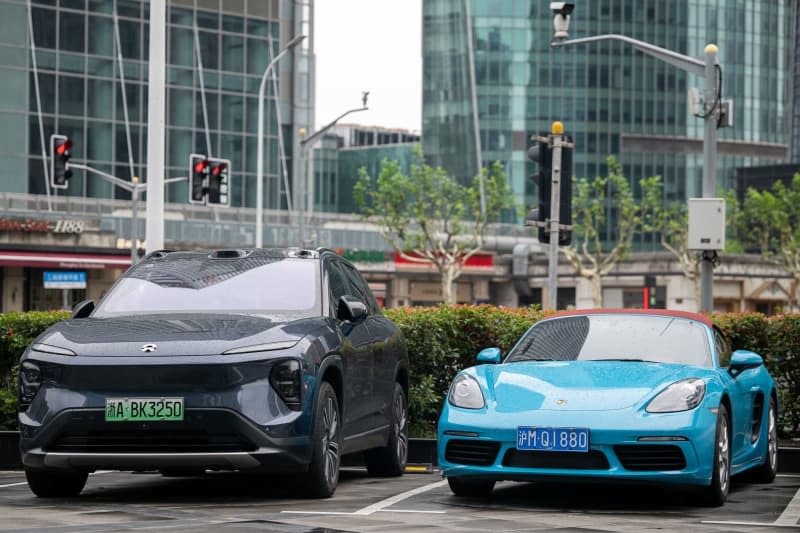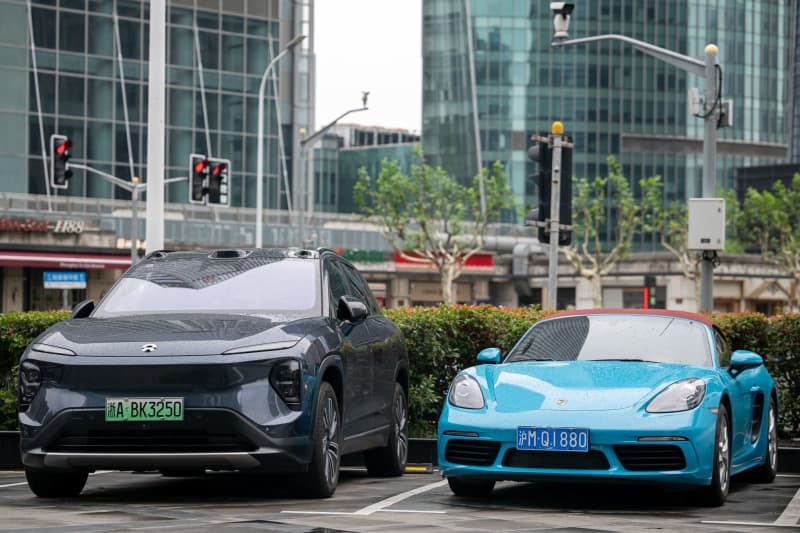
European Union countries on Friday cleared the way for additional tariffs of up to 35.3% on battery-powered electric vehicles imported from China, EU diplomats told dpa.
The European Commission had announced the additional tariffs after an investigation accused Beijing of subsidizing domestic electric car manufacturers and thus distorting the EU market.
The tariffs will apply for five years, on top of the standard 10% import duty on EU cars.
Whether the import tariffs, which are likely to worsen tensions between the EU and its largest trading partner, will come into effect in early November now depends on the commission.
The plans, which caused uproar in EU capitals and among car manufacturers, could still be rejected if Brussels reaches a solution with China at the negotiating table.
In a statement after the vote, the commission said that “the EU and China continue to work hard to explore an alternative solution.”
However, this solution should be fully compatible with World Trade Organization rules, adequate, verifiable and enforceable, the committee said.
To stop the new tariffs, at least 15 of the 27 country delegates, representing 65% of the EU population, would have had to vote against the tariffs.
However, only five countries representing around 23% of the EU population did so, while 10 countries voted in favor and 12 abstained, EU diplomats told dpa.
China said it wants to continue negotiations with Europe despite the vote.
“China hopes that the EU will recognize that imposing tariffs will not solve any problem, but will only shake the confidence of Chinese companies and deter them from investing in and cooperating with the EU,” said a statement from the Ministry of Commerce in Beijing. Friday.
Both sides had expressed their willingness to resolve their differences during negotiations in recent weeks, the report said. China has always demonstrated a cooperative attitude and shown “the utmost flexibility,” the ministry said.
Technical teams from both sides will resume talks on Monday. “China urges the EU to translate its political will into action and return to the right track to resolve trade frictions through consultations,” the ministry continued.
It said it would take all measures to firmly defend the interests of Chinese companies.
Berlin, which voted against the measure, repeatedly called for further talks with Beijing amid concerns over retaliation that could damage the country’s major auto industry.
After the vote, German Finance Minister Christian Lindner warned of an escalation in trade policy disputes, claiming in a post on “We need a negotiated solution,” he wrote.
German carmakers, including brands such as Volkswagen, BMW and Mercedes, generally opposed the tariffs because they have invested in the Chinese market and rely heavily on sales there.
VW and BMW both called for a resolution after the vote to avoid a trade dispute.
“We call on the European Commission and the Chinese government to constructively continue the ongoing negotiations on a political solution,” VW said in a press release. “The common goal should be to prevent protective tariffs and thus avoid a trade conflict.”
“The planned tariffs are the wrong approach and would not improve the competitive position of the European car industry,” VW added.
“Today’s vote is a fatal signal for the European car industry,” said BMW boss Oliver Zipse. “Now a quick solution is needed between the European Commission and China to avoid a trade conflict that will ultimately have only losers.”
“We are convinced that punitive tariffs will worsen the competitiveness of a sector in the long term,” a Mercedes spokeswoman said on Friday.
Free trade and fair competition, she claimed, create prosperity, growth and innovation. The possible imposition of punitive tariffs, as planned by the European Commission, is, she suggested, seen as a mistake that could have far-reaching negative consequences.
The German Automotive Industry Association (VDA) also warned of negative effects, with VDA chairman Hildegard Müller saying in a statement that this was “another step away from global cooperation”. She claimed that the potential harm would therefore outweigh the potential benefit of the instrument.
Ultimately, Germany was unable to make good on its position because other major EU countries had expressed support for the tariffs ahead of the vote.
French President Emmanuel Macron was among those who expressed support for punitive measures against Chinese e-cars. The Italian government had said it was in favor of the tariffs.
European carmakers have struggled to substantially increase their sales of battery-powered cars, with Chinese electric cars on average 20% cheaper than EU models, according to the commission.







